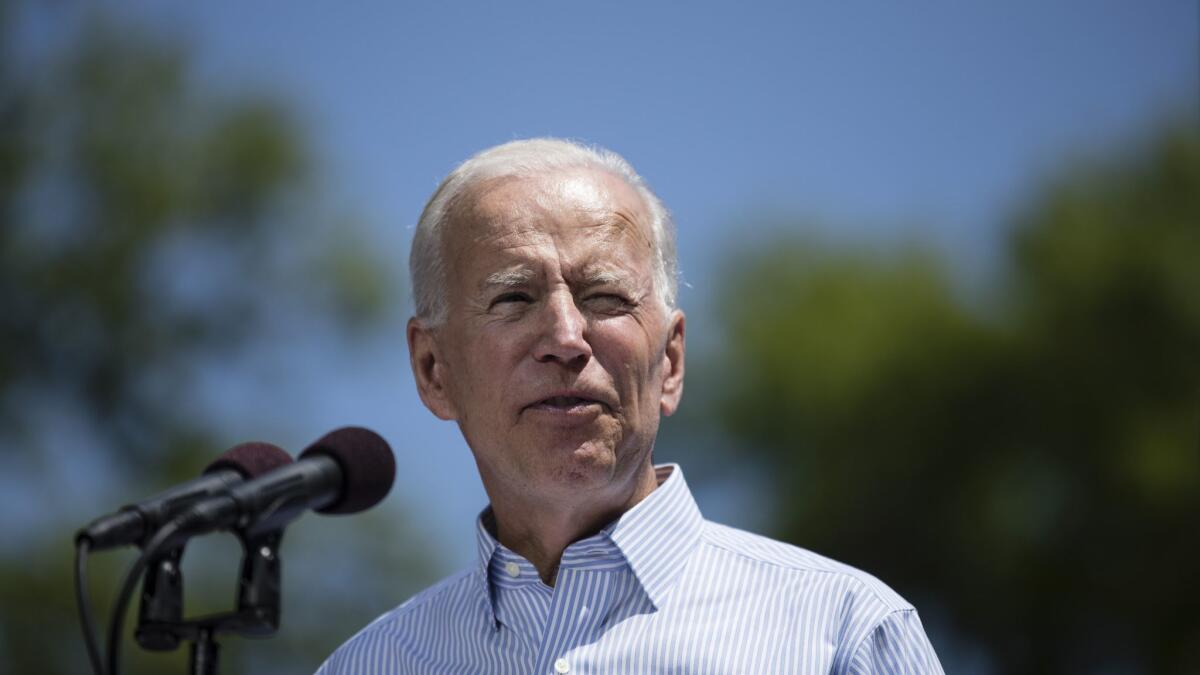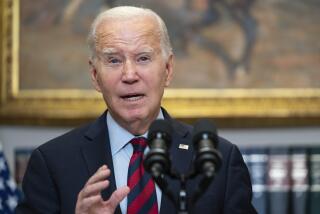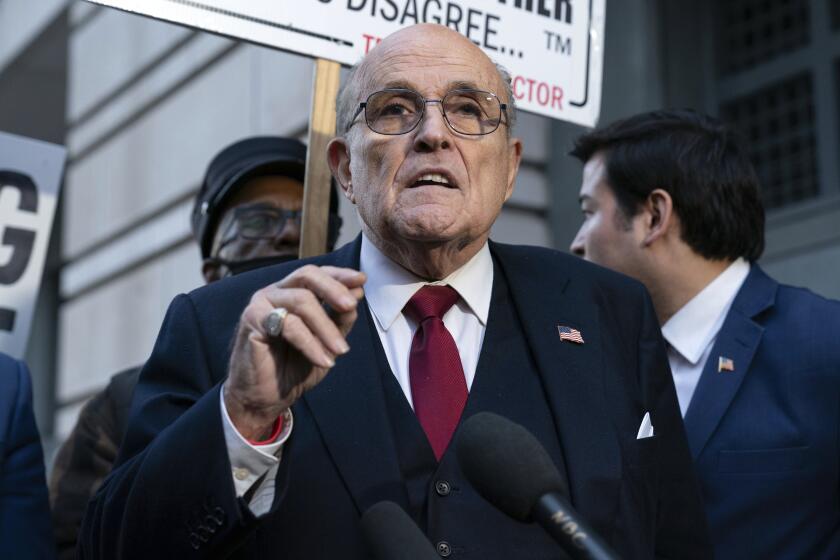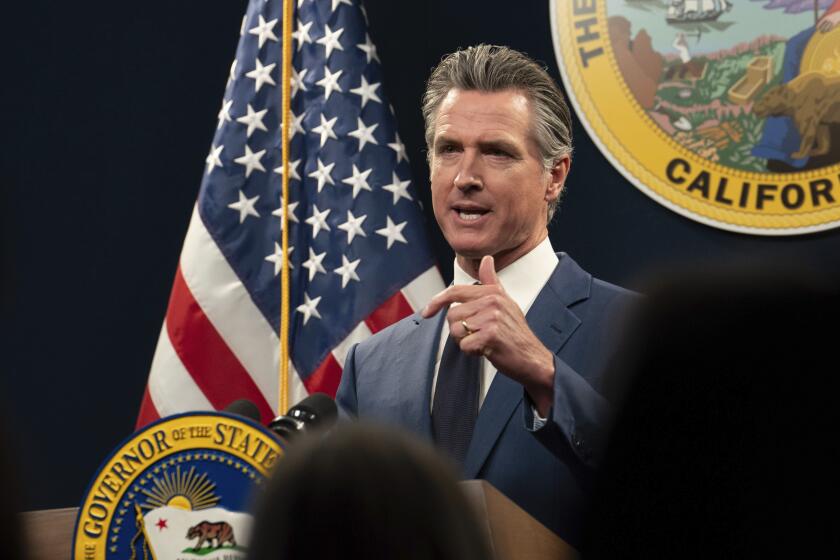Joe Biden proposes big expansion of federal money for K-12 schools

Joe Biden stopped talking entirely in generalities and plowed into the policy debate of the 2020 Democratic primary on Tuesday with an ambitious plan to triple the amount of federal spending on low-income schools.
The proposal to infuse some $30 billion of additional Title I spending into struggling K-12 schools is sure to please teachers unions, which play a crucial role in the Democratic primary, while also highlighting the tried-and-true path Biden is taking in his bid for the nomination. His first major policy unveiling is not focused on winning a new constituency or distinguishing himself as an outside-the-box reformer but on reestablishing his bona fides as a steady hand who will shore up — not blow up — the existing system.
“Everybody’s going to tell you how much they value education,” Biden said Tuesday afternoon, as he unveiled his plan before an audience of union educators at a town hall event in Houston hosted by the American Federation of Teachers.“I’ve got an expression I use: don’t tell me what you value. Show me your budget and I will tell you what you value.”
“I am a union guy, beginning, middle and end,” Biden said. “Wall Street and bankers and hedge fund managers, good people. But they didn’t build America. The middle class built America. You know who built America? Labor.”
So far, Biden, the Democrats’ front-runner, has largely stuck to broad themes, promising to unify the country. Until now, he had not offered a specific, new policy idea.
The five-decade-old Title I education program has long been popular across party lines. It funnels about $16 billion from the federal government to economically struggling areas, which then allocate the dollars with a high level of discretion. The program has been criticized by some experts as lacking accountability and efficiency, but the biggest complaint educators seem to have with it is that it is deeply underfunded.
Other candidates in the race have also proposed to spend more to boost teacher pay. California Sen. Kamala Harris, for example, unveiled a proposal in March to do so.
Unlike some of his rivals who have proposed innovative new approaches and funding mechanisms, Biden’s pitch on education works within the confines of the current system. The program may have some flaws, but given its popularity with both parties, experts said, Title I could prove the most politically realistic path to vastly increasing federal spending on schools.
“If you wanted to spend a lot of money without hitting a lot of headwinds, this is the way to go,” said Mark Dynarski, an education consultant to governments and nonprofits who has studied Title I. “Is it necessarily the one that would improve outcomes the most? That is a tougher question.”
But Dynarski expects the proposal will be well received by educators and parents. “I can’t think of a plan in the last 30 years in education that would have quite this magnitude,” he said.
Biden was received warmly at the union town hall Tuesday, with the organization’s president, Randi Weingarten, offering him unbridled praise for his work as vice president, even in an administration that often frustrated teachers.
“Joe Biden was our north star in the last admin,” she said. “We had a go to guy who always listened to us, who always brought our message to the White House, to the Oval Office, and I trusted that message would get through.”
“Joe Biden doesn’t campaign with working people because it is politically correct,” Weingarten went on. “He is with us because he is us. Frankly, it is everything the current president is not.”
How much of the spending in Biden’s plan would go toward increased teacher pay is unclear. A memo from the former vice president’s campaign says the funding boost is intended to go in large part to teacher raises. It also lays out other ambitious program expansions toward which the money would be targeted. Those include plans for universal public preschool for 3- and 4-year-olds and expanding course offerings in economically disadvantaged schools.
By contrast, the plan for boosting teacher pay proposed by Harris promises to spend nearly as much on teacher salaries alone, boosting average teacher pay $13,500 per year.
Biden’s plan includes an initiative to double the number of psychologists and other counselors in schools. He is vowing to hire tens of thousands of them.
“I don’t think people fully appreciate the circumstances many of you find yourselves in,” Biden told the teachers Tuesday. “You are expected to be a social worked. You are expected to be a counselor ... You are expected to be the person who is the person of last resort. You are all expected to do so many things.”
Biden also vowed to fix the troubled Public Service Loan Forgiveness Program, which is supposed to help teachers and other public servants pay off student loans. In addition, he said schools would be a key beneficiary of his push for a federal infrastructure package. And he promised $1 billion to make new training opportunities available to teachers.
But it was the focus on Title I, which targets the aid to schools more likely to be in need that education researchers said could make the Biden plan particularly palatable to voters. Half the public school students in America currently benefit from the program in some manner.
“The proportion of children who are economically disadvantaged and struggling is so large,” said Kirsten Kainz, a professor at the University of North Carolina’s Child Development Institute who is an expert on Title I. “We’ve reached a tipping point. This plan reflects a deeper understanding that this problem will not go away without a sizable solution.”
More to Read
Get the L.A. Times Politics newsletter
Deeply reported insights into legislation, politics and policy from Sacramento, Washington and beyond. In your inbox three times per week.
You may occasionally receive promotional content from the Los Angeles Times.







